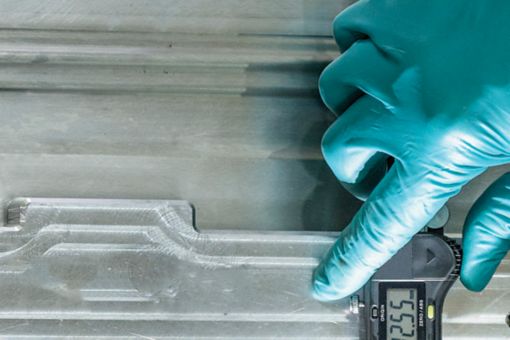Heavy manufacturing and more specifically the Basic Metals sub sector have experienced significant disruption during the last decade and the pandemic. Against odds, the sub sector is showing significant growth and transformation. “The Future of Heavy Industry-Focus on Metals Manufacturing” survey conducted by KPMG in Greece, explores the Greek Metal’s sub sector structure, size and growth, focusing on pricing considerations and financial trends. Onwards the survey provides an overview of key market players, their financials and main challenges they are currently facing. Finally, the survey sheds light on the sub sector’s future outlook, highlighting trends, opportunities but also driving forces of the sub sector’s smart transition.
Key findings:
1. The Basic Metals Industry (Copper, Aluminium and Iron & Steel) turnover is on the rise with a Compounded Annual Growth Rate (CAGR) of 6.2% from 2013 to 2019. This is largely due to increased exports and significant infrastructure projects.
2. The Basic Metals industry is an important employer for the Greek economy since in 2021 the industry directly occupied more than 20 thousand individuals, which is 0.5% of Greece’s total workforce.
3. Price of raw materials (scrap metal & ore), have sharply increased amidst the pandemic. From the start of the Covid 19 era till June 2021 the price of aluminium, copper, Iron and steel scrap increased 44%, 79%, 137% and 75.6% respectively.
4. The industry has experienced continuous growth and a 28% increase in revenue from 2015 to 2019.
5. Supply chain disruptions due to the pandemic, environmental concerns, ambitious infrastructure projects and trade policies are continuously pushing metal prices upwards.
Prevalent Trends amongst Basic Metals manufacturers are the following:
ꟷ Focus & Investment in ESG initiatives
ꟷ Reducing operational disruptions through Automation
ꟷ Investment in Production Practices supporting digital capability development
ꟷ Emphasis on Human Capital
Main challenges faced by Basic Metals manufacturers are:
ꟷ Hindered access to raw material
ꟷ Debt Obligations
ꟷ Workforce Availability
ꟷ Availability of Transportation
Within the next decade, planned large-scale projects worth more than € 21.5 billion will boost sectoral growth and sales. Industrial production capacity utilisation has recovered and surpassed pre-pandemic output, but is still at 77% operating capacity. This should be seen as an opportunity for Greek metals manufactures to further boost production and focus on exporting. Nevertheless, COVID-19 disruptions have led to a sharp increase in both the price of primary materials and cost of energy. Consequently, as primary materials and energy consumption constitute the 2 most significant expenses, companies are challenged to maintain their profitability and continuous operation. In addition, metal manufacturers are focusing their attention on ESG initiatives and heavily investing in digital technologies which will in turn change the way metal manufacturing plants operate. Facilities are becoming increasingly interconnected with robots, software and mechanical/ electrical equipment boosting productivity and ensure consistent product quality.



